Reishi Mushroom
Article by Stefan Burns - Updated April 2022. Join the Wild Free Organic email newsletter!
| Name: | Reishi, Lingzhi, Linnaean - Ganoderma lucidum, G. tsugae, G. sessile, G. lingzhi |
| Color: | White to dark reddish brown |
| Constituents: | Triterpenes, glycoproteins, germanium, myconutrients, polysaccharides, superoxide dismutase |
| Effect: | Improves metabolic health, immune system adaptogen, increases natural killer cell activity, promotes parasympathetic (rest and digest) activity |
| Preparation: | The mushroom cap is dried and either taken supplementally as a powder or sliced/shredded and brewed into a tea. For a powerful extraction simmer large amounts of reishi mushroom in water for 2-3 hours. |
| Dosing: | As a supplement take 0-5 grams daily. For brewing into tea 3-10 grams per cup/pot. |
| General Notes: | There are different species of Ganoderma that all look very similar and are used interchangably medicinally. Reishi is an adaptogen that is best known for boosting the immune system. Often used in mushroom or supplement blends for rest and sleep. |
What is Reishi Mushroom?
Reishi or Lingzhi is the common name for a subgroup of polypore mushrooms that belong to the Ganoderma genus, the main members of this group being Ganoderma lucidum, Ganoderma lingzhi, Ganoderma sessile, and Ganoderma tsugae.
The Ganoderma species that are classified as Reishi are medicinal mushrooms considered by many as a panacea for all types of diseases and have been used in herbal medicine practices for thousands of years.
Reishi Mushroom Identification
The different reishi species are found growing in deciduous forests worldwide. Reishi in the wild is quite rare but it’s hard to misidentify because of it’s unique appearance and key identification features. Reishi has a cork-like texture and its underside is covered with small pores instead of gills, from which it releases its spores. The underside is white if unbruised and will turn yellow to brown if bruised. Reishi typically has a banded appearance which goes from white on the edge to orange and then reddish-brown traveling towards the stem. Older reishi caps will turn a dark mahogany color but still have some striping preserved. For a complete guide on identification, health benefits, and how to brew reishi into a tea watch the video I made below:
Reishi Mushroom Benefits
In Traditional Chinese Medicine reishi (also known as Ling Zhi) is known as the Mushroom of Immortality, and for good reason. Reishi is a powerful adaptogenic mushroom that has many beneficial health effects on the body due to its unique chemical constituents. The most active of these components are:
Polysaccharides (includes beta-glucans) | Functions: Improves energy metabolism and cell to cell signaling, neuroprotective, boosts immunity
Triterpenes | Functions: Anti-tumor & anti-cancer, radiation protection, anti-viral, important components of cell membranes and of steroid signaling molecules
Germanium | Functions: Anti-tumor & anti-cancer, radiation protection, boosts immunity, improves oxygen transport
Together these chemical constituents and others like superoxide dismutase plus an abundant assortment of micronutrients broadly influence the function of the immune, cardiovascular, metabolic, digestive, and cognitive systems providing the following benefits:
Reishi Microbiome Improvements
Inhibits the growth of gram positive and gram negative bacteria
Increases the effectiveness of antibiotics
Demonstrates anti-microbial activity even against multidrug resistant bacteria
Inhibits the growth of fungal infections
Reishi Metabolic Improvements
Lowers blood glucose levels and increases insulin levels for diabetics
Normalizes bodyweight and appetite
Lowers blood cholesterol levels and triglycerides while simultaneously boosting HDL cholesterol
Increases oxygen uptake and transport
Reishi Fights Cancer and Boosts the Immune System
Polysaccharides potentiate immune function increasing anti-tumor activity
Triterpenes are potent anti-viral agents and cytotoxic to cancer cells
Decreases the growth of new blood vessels to cancer cells
Useful in the treatment of androgen-induced diseases such as benign prostatic hyperplasia and prostate cancer
Increases the proliferation and functional activity of macrophages, T lymphocytes, B lymphocytes, and natural killer cells
Strongly inhibits the multiplication of HIV-1
Demonstrates antiherpetic activity
Reishi Anti-inflammatory and Antioxidant Effect
Has superoxide radical and hydroxyl radical scavenging abilities
Decreases the oxidation of LDL cholesterol and other lipids
Increases glutathione peroxidase levels
Exhibits both systemic and topical anti-inflammatory effects
Ganoderic acid C was found to be responsible for most of the anti-inflammatory activity
Reishi Protects the Liver
Provides protection against liver injury
Reverses the symptoms of liver injury
Potentially able to reverse liver fibrosis
Reishi Improves Cognition
Promotes neurogenesis
Has anti-depressive effects
Protect neurons from hypoxia/reoxygenation injury
Protects dopaminergic neurons and ameliorates behavioral deficits in Parkinson’s disease
Note: Much of the research into reishi showing these benefits has been done using animal models and therefore hasn’t been directly confirmed for humans.
How Long does it take for Reishi to Work?
The effectiveness of supplementing with reishi will depend on the quality of the supplement/extract, the amount taken, and the length of time for which it is taken consistently. Using reishi, either as a supplement or extracted into a tea will be useful immediately in the context of a viral infection or inflammatory condition, but for best effect reishi should be taken daily so the benefits may accrue with time. It may take a few weeks of using reishi for the more serious anti-cancer, neuroprotective, and anti-diabetic effects to become noticeable, and even then the effect may be subtle.
A single influx of myconutrients is useful in the context of improving health but it’s really the consistent loading of the many heath-promoting compounds found in reishi and other herbals that culminates in therapeutically relevant health improvements.
For best effect and observation of health improvements I recommend using reishi for at least 30-60+ days. If used at high dosages it should be cycled off occasionally for the length of time it was used for.
Reishi Mushroom Side Effects
Medicinal mushrooms like reishi have a record of safe usage proven over thousands of years, and side effects are rare from short-term or long-term usage. Reishi is an immune-potentiator so those with autoimmune issues should exercise caution in using reishi though it should improve symptoms of autoimmunity by normalizing the functioning of the immune system.
One potential issue to be aware of when supplementing with reishi or really any herbal supplement for the matter of contamination, especially from heavy metals. Reishi is widely cultivated on a variety of growing mediums like logs, woodchips, and sawdust, and while some growers follow strict sourcing protocols and test for pesticides, heavy metals, and molds, other growers may be less discriminate and follow zero quality control protocols. Make sure to source reishi from a reputable producer who follows the required health guidelines, or if foraging only pick reishi from lands that haven’t been exposed to chemical waste in the past or present.
One side effect anecdote of mine I can provide is that when I drank 3 cups of a potent reishi tea all in one sitting on an empty stomach while fasting I experienced some slight visual distortions. These visuals were characterized by fractal patterns of light on the periphery of my vision. Though slightly alarming at first it went away within 15 minutes and didn’t appear to cause any problems. I have read a couple other anecdotal reports of the same phenomenon from people who consumed a very high dose of reishi. I do not recommend trying this or consuming reishi at such high dosages.
Reishi Mushroom Tea
There are a few ways to make a reishi mushroom tea. The traditional method is to cut the reishi fruiting body into strips or pieces which are then boiled for 2-3 hours which produces a very potent reishi tea. Once prepared the tea can be stored in a fridge and used over the course of a couple weeks.
A simpler method is to take some whole reishi and shred it using a blade grinder and add some of the shredded reishi “fluff” to a tea ball/strainer. Steep for 5-15 minutes with hot water along with any other herbal ingredients desired. This will extract a lot of the beneficial compounds from the reishi but overall produce a milder reishi tea than the traditional method. Some of the beneficial compounds like triterpenes won’t be extracted in great quantities if reishi is brewed into a tea because they are not water soluble, instead being alcohol soluble.
One more option for creating a reishi tea is to mix reishi powder with a liquid. This method might produce a slightly grainy liquid but will ensure all the beneficial compounds found in reishi are consumed. Reishi coffee or hot chocolate can be prepared using a reishi supplement powder.
The simple reishi tea is best for supplementing with reishi daily as a preventative health measure. The traditional method of preparation is preferable when dealing with serious health concerns that require a more powerful effect.
Reishi Dosing
Reishi can be used in many ways, from powders to teas to tinctures, and each method of supplementation has its own dosing recommendation.
For a raw reishi powder the recommended dosing range is 0.5 - 2 grams. More can be taken than that but it should be done carefully and only after using a lower dosage for an extended period of time confirms no side effects are being experienced. An extracted reishi powder should be supplemented at a lower amount than a raw powder, a recommended range being 250 - 1000 mg.
To brew a simple reishi tea, 2-3 grams of shredded reishi is sufficient, and if a powerful reishi tea is prepared in the traditional method of boiling reishi strips for many hours, then the recommended dosing range would be 4-8 oz of tea.
Where to Buy Reishi Supplements?
Reishi supplements are sold by many companies and I have used many different reishi products sold by a variety of sellers. The reishi blends sold by Four Sigmatic are good, are dosed appropriately, and come in interesting variations like mushroom coffee, mushroom hot chocolate, or in medicinal mushroom blends. They’re definitely worth checking out for use on the go.
Overall I prefer reishi products and supplements that I can more easily dose myself and are more economical, such as those sold by Mountain Rose Herbs and Nootropics Depot.
Mountain Rose Herbs Organic Reishi
Mountain Rose Herbs sells organic reishi mushroom as a whole cap, slices, powder, or extract.
Reishi Whole Cap
I bought a pound of whole reishi caps from Mountain Rose Herbs before and was surprised when I received four huge caps. They’re quite lightweight and though tough can be cut apart with scissors. The reishi sold from Mountain Rose Herbs is USDA organic certified and is the best band for your buck in how much you get. Brewing reishi tea 3-4x a week 1 lb of caps will last many months, possibly even up to a year.
Finely Milled Reishi Powder
The reishi powder is more expensive than the whole caps or slices on a per pound basis but very economical compared to the reishi supplement powders sold by Nootropics Depot (more information below). The grind of the powder is medium fine and if mixed into a liquid will settle to the bottom with some chunks being larger. The larger grain size of the powder is not an issue if brewed like a coffee might, or even in conjunction with coffee. For an ultra-fine reishi supplement powder that mixes effortlessly into a drink I recommend the reishi powders from Nootropics Depot.
Reishi Tincture
The reishi tincture sold by Mountain Rose Herbs is double extracted to bring forth both the water and alcohol soluble constituents into the extract. Using a tincture is an excellent way to supplement with reishi directly, either under the tongue or into a drink without having to worry about the mixing and settling of powders.
Nootropics Depot Reishi Supplements
Nootropics Depot sells two reishi supplement powders. One is a raw powder and the other is a 8:1 extract powder.
Reishi 1:1 Hot Water Extracted Powder
The Nootropics Depot 1:1 reishi mushroom powder is the whole mushroom turned into a powder where during the process the chitin (protective outer layer of the cell) is broken down using hot water to make the beneficial components of the mushrooms more bioavailable. None of the initial mushroom material is lost so the beta-glucan content is very high. The 1:1 reishi extract powder is full spectrum and contains every beneficial compound within the Ganoderma lucidum mushroom.
Beta-Glugan (β-Glucan) minimum content: 35%
Reishi 8:1 Water and Alcohol Extracted Powder
The Nootropics Depot 8:1 reishi mushroom powder is a combination of the 1:1 hot water extracted reishi powder and a 16:1 alcohol extracted reishi powder. Mixed in equal quantities they combine into a 8:1 dual water and alcohol extracted reishi mushroom powder.
Beta-glucans are not ethanol soluble but triterpenes are. Combining the 1:1 powder which is high in beta-glucans with the 16:1 powder which is high in triterpenes creates a “best of both worlds” extracted reishi supplement powder more likely to have more potent immune system and cognitive boosting effects than the 1:1 whole powder.
Beta-Glucan (β-Glucan) minimum content: 20%
Note: Laboratory methods for testing beta-glucan can be inaccurate and unreliable, and the numbers provided by any supplier of medicinal mushrooms should be taken with a grain of salt.
If purchasing reishi from a Chinese pharmacy you may have to ask for Ling Zhi which is often how they refer to reishi.
Medical Disclaimer: All information, content, and material of this website is for informational purposes only and is not intended to serve as a substitute for the consultation, diagnosis, and/or medical treatment of a qualified physician or healthcare provider.
References:
Batra P, Sharma AK, Khajuria R. Probing lingzhi or reishi medicinal mushroom ganoderma lucidum (Higher basidiomycetes): a bitter mushroom with amazing health benefits. Int J Med Mushr. 2013;15(2):127-143.
Huang S, Mao J, Ding K, et al. Polysaccharides from ganoderma lucidum promote cognitive function and neural progenitor proliferation in mouse model of alzheimer’s disease. Stem Cell Reports. 2017;8(1):84-94.
Disclosure: Wild Free Organic is a member of various affiliate programs and if a purchase is made through one of our affiliate links a small commission is received. This does not affect your purchase price. Visit our disclosure page for more information.




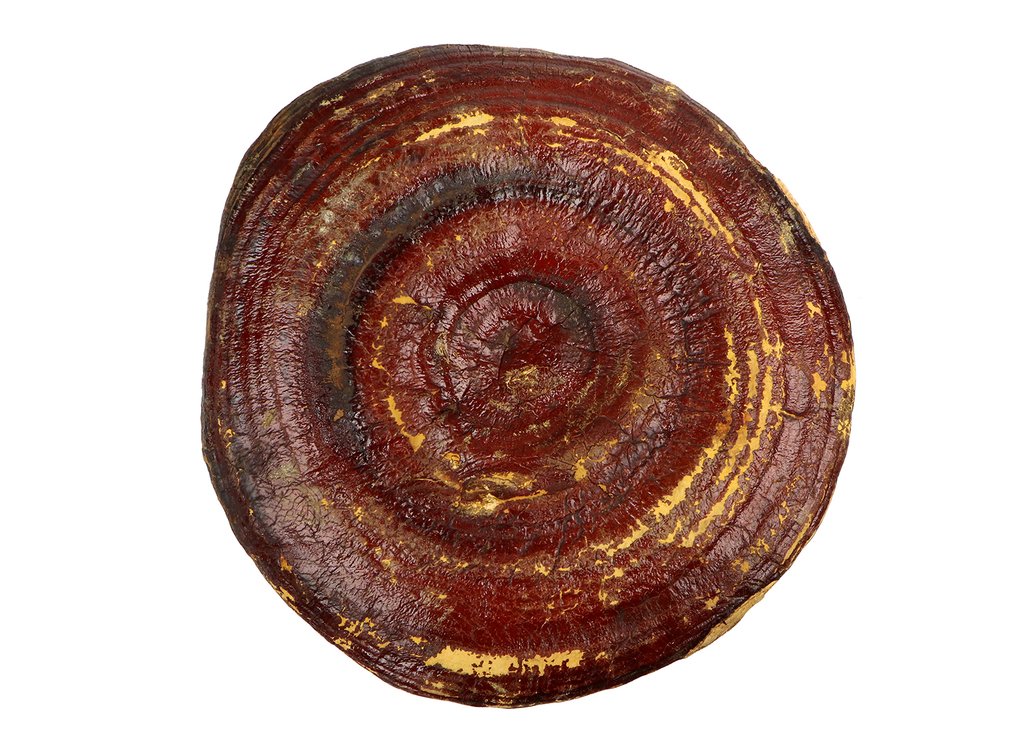
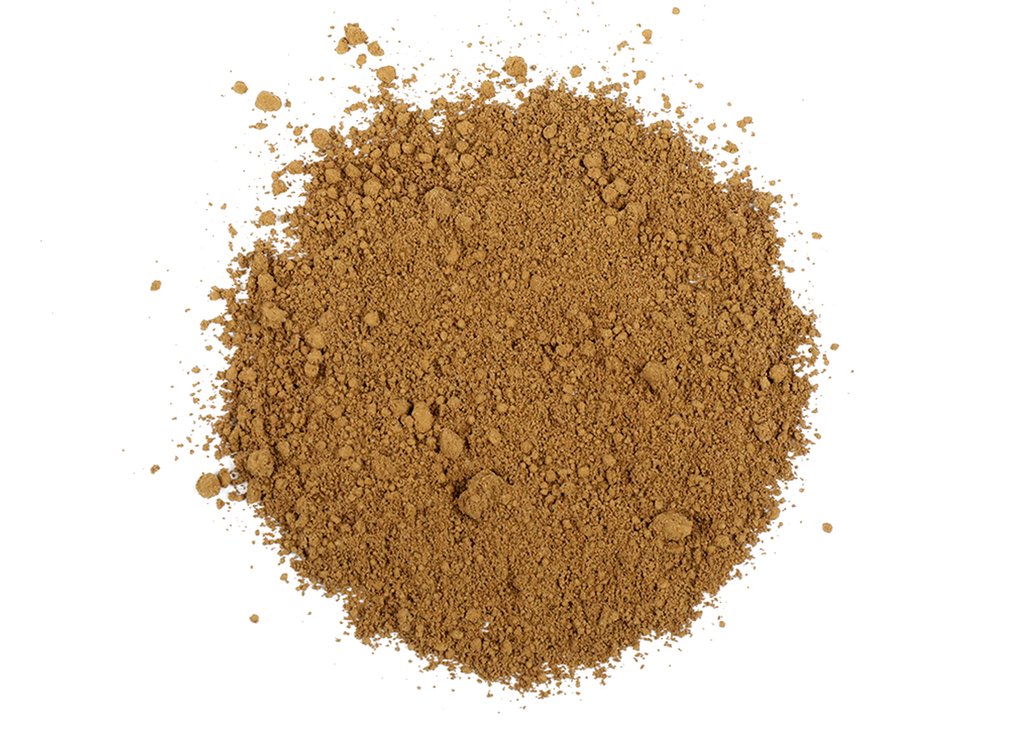
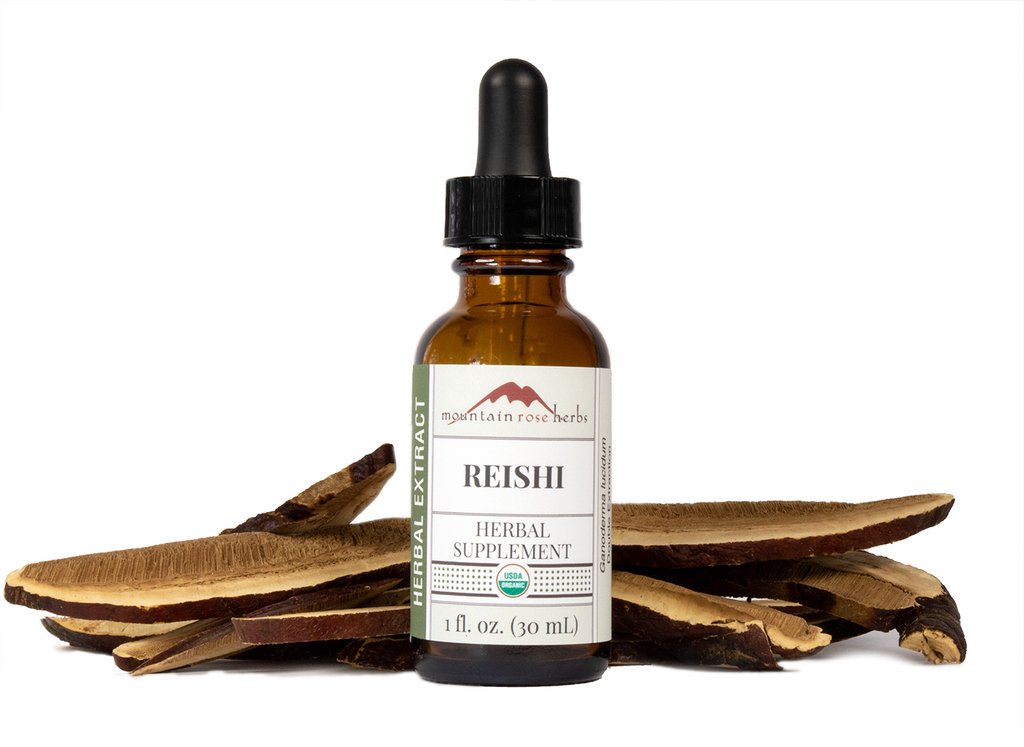
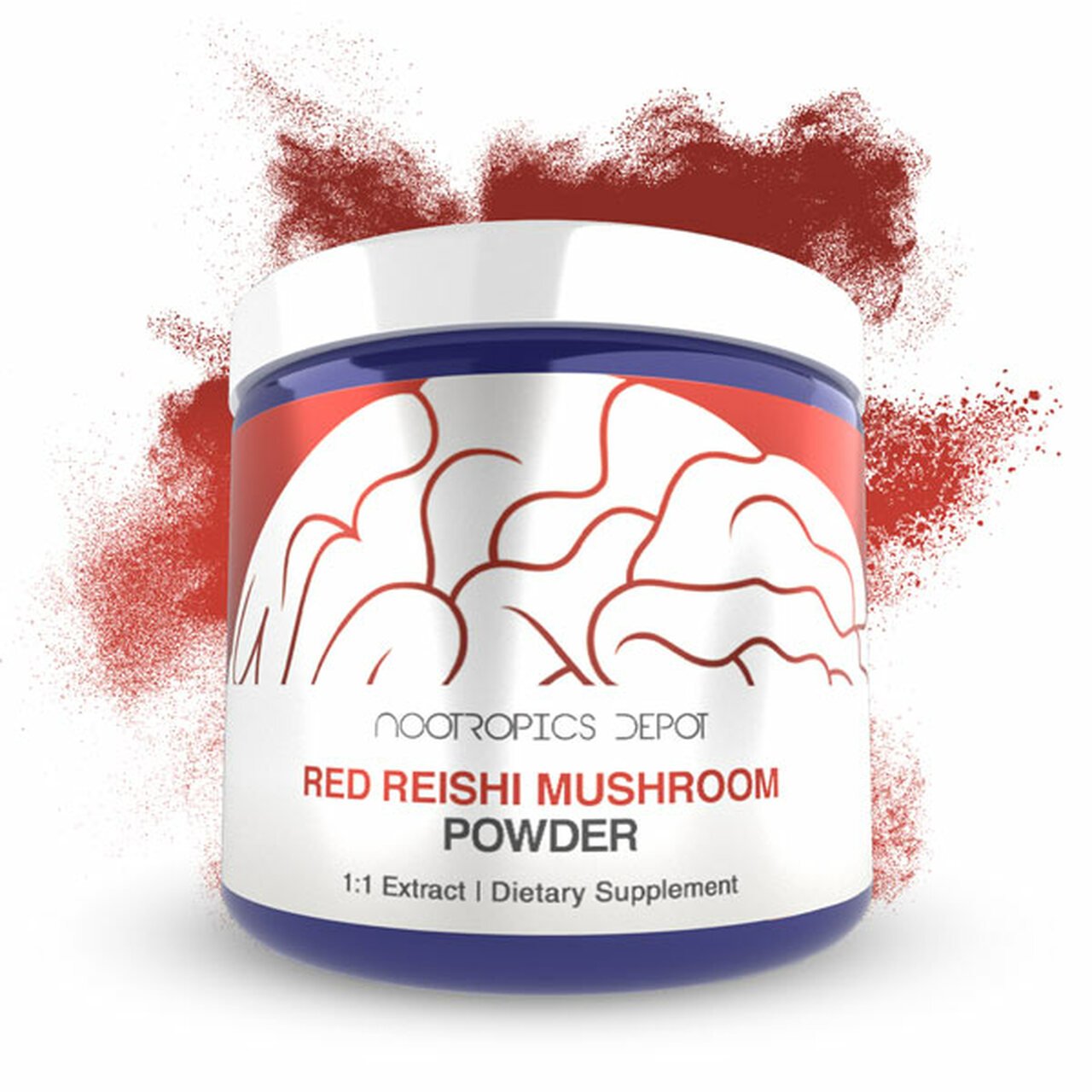

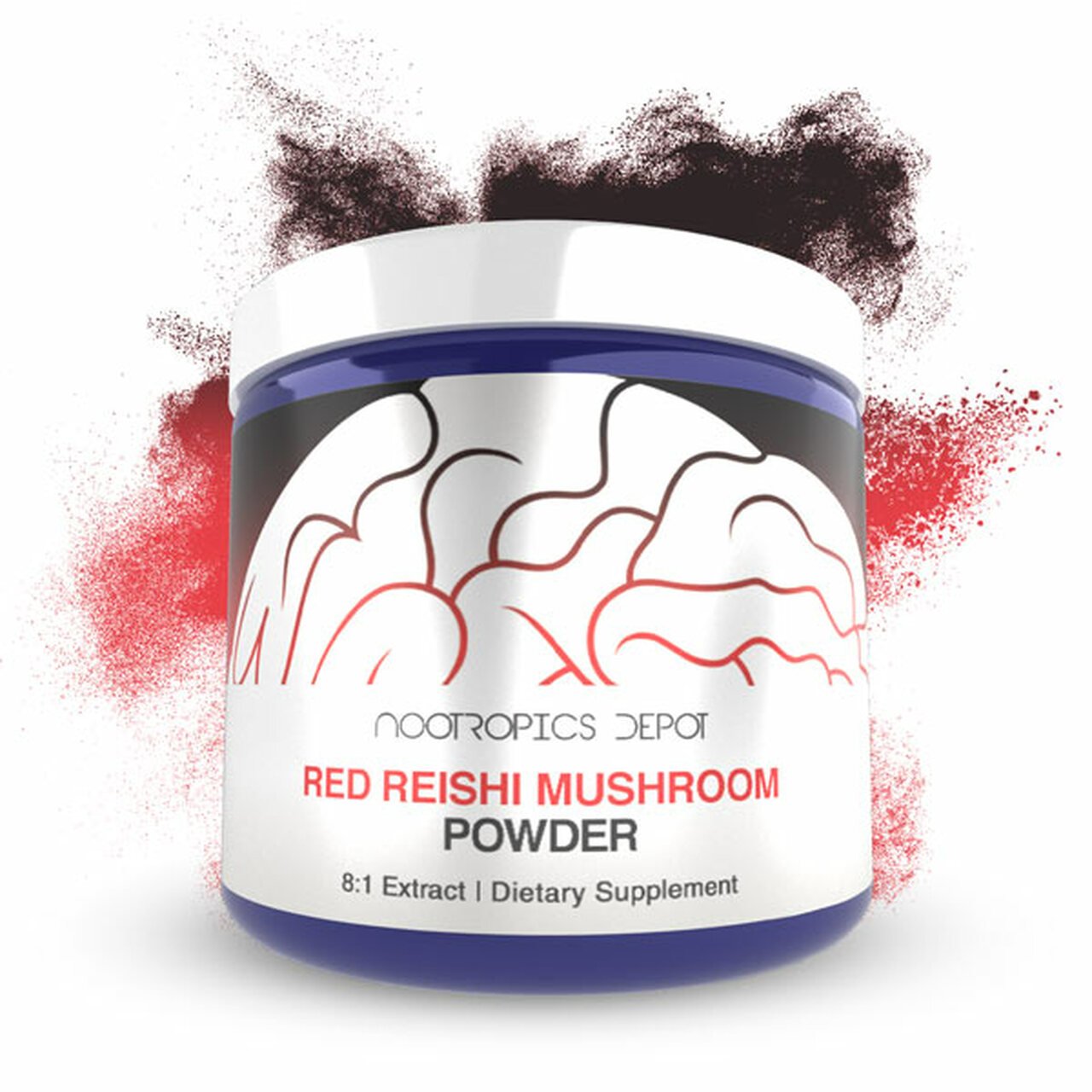



Chaga is a medicinal mushroom that has a strong safety profile which has been used for thousands of years as a health preventative and to treat a variety of health problems that affect the digestive, immune, and cardiac systems. Chaga mushroom is unique among polypore mushrooms since 40% of its dry-weight are water soluble compounds, making it ideal for easily brewing as a tea or into coffee.